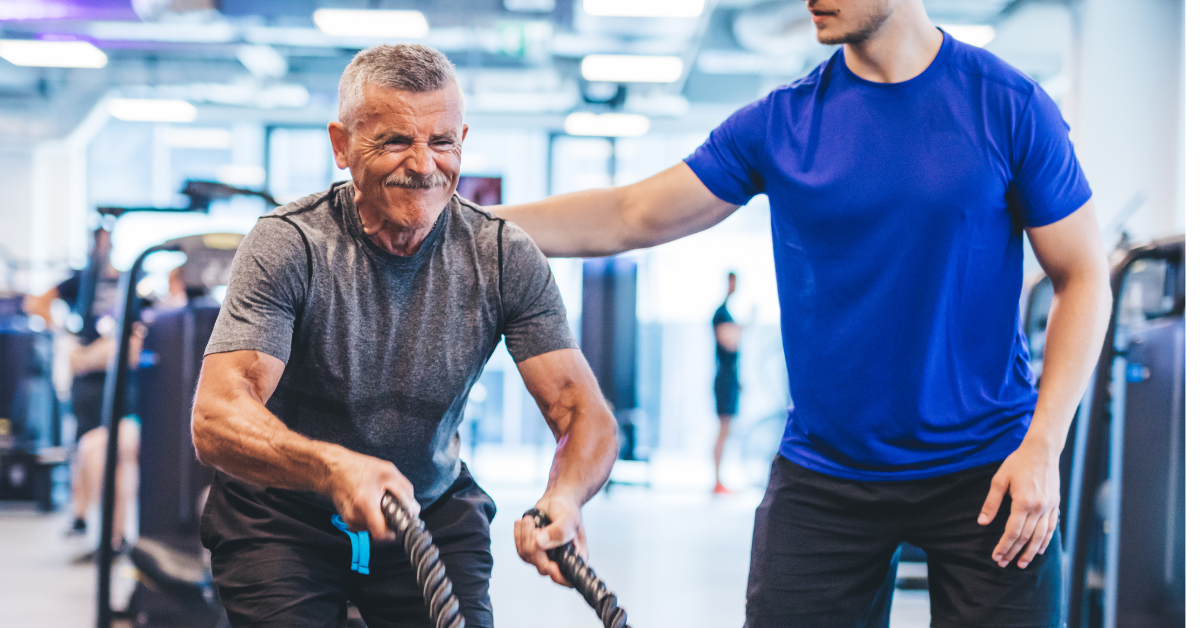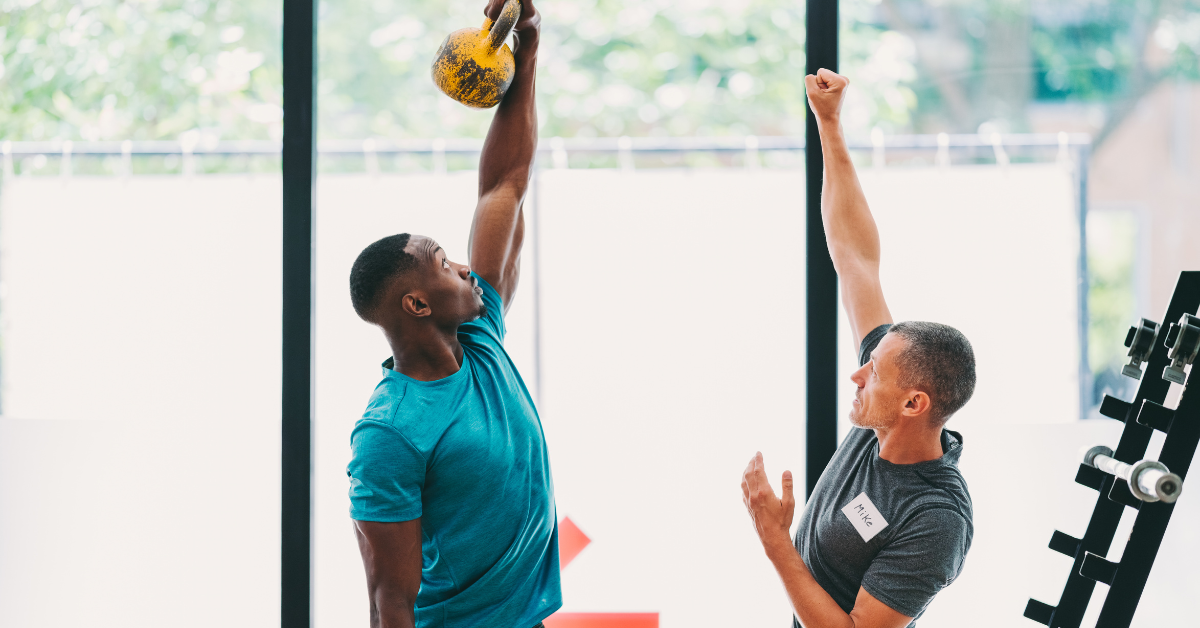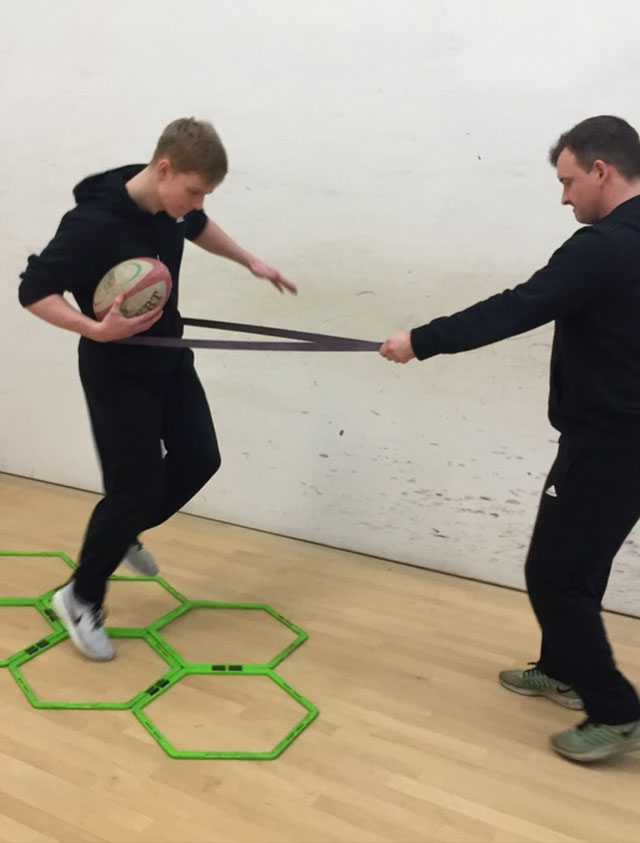If you’re feeling stuck in a fitness rut and need a little extra help to push you towards your goals, you’re not alone! Many of us are confused when it comes to finding the right type of coaching that will meet our needs – and that’s why we’re here to help. Today we unveiled the “Unlock Your Fitness Goals” guide, a comprehensive look at the different types of coaching available to help you reach your goals on the gym floor. If you’ve ever wondered which type of coach would be best for you…we’ve got it covered! From personal trainers to yoga instructors, nutrition assessments, online coaching, and more – unlocking your fitness goals has never been easier. By the end of this post, you’ll have a better understanding of which type of coaching will work best for you and how to find the right coach that fits your needs. Let’s dive in!
Quick Explanation of Key Question
Fitness coaching can encompass a variety of formats and approaches, such as personal training, group exercise classes, and nutrition counselling. Depending on your individual goals, there is likely a coaching style that can best support you in achieving those objectives.

Classifying Types of Fitness Coaching
When it comes to classifying types of fitness coaching, there is a lot to consider. The main classification method is to divide up types of coaching into either Process-Oriented Coaching or Goal-Oriented Coaching. Process-oriented coaching focuses on mastering technique and building physical capacities, while goal-oriented coaching focuses on reaching specific objectives relating to health, performance, and body composition. There is debate among experts as to which type of coaching is best for athletes, with some arguing that the combination of the two approaches produces superior results in the long term.
Process-oriented coaching tends to be more broad based, looking to help participants develop muscles across the body, become more powerful and move more effectively in general. For athletes who would benefit from this type of training, an individualised programme focusing on increasing strength and agility over time can prove very beneficial. Goal-oriented coaching however looks to build around specific objectives such as increased speed, improved balance or achieving a certain weight loss target. Athletes may find this approach more fitting depending on their goals and individual requirements.
Evidence suggests that both approaches have their merits but that combining them within one comprehensive programme maximises efficiency and creates a greater basis for varying workouts over time. Those looking to reach a peak performance level might benefit particularly well from this combination approach, where they learn key techniques while still having a focus on attaining any necessary goals in order to achieve success in competition.
By better understanding the different types of available fitness coaching and how they can work together to help reach maximum performance levels, individuals can unlock their full potential with greater ease, setting the stage for further progress towards longer term fitness objectives. With that in mind, in our next section we will look at delving deeper into the concept of goal-oriented programmed coaching and how it could be applied for various fitness goals.
Goal-oriented Programmed Coachings
When it comes to goal-oriented coaching, this is the ideal option for individuals who want to focus on specific, meaningful goals. Whereas some people may only be interested in getting fit, others may have more specific objectives they want to achieve – such as losing a certain amount of fat or building a certain muscle mass. Goal-oriented coaches can provide tailored programming and advice to help their clients reach these goals with discipline and tenacity.
Goal-oriented coaching can also satisfy people who like structure and organisation in their fitness routine. As the exercises and activities are pre-organised by the coach and likely reflect the client’s desired fitness outcomes, the programme can appear much more manageable than if it was crafted from scratch.
It should be acknowledged, however, that goal-oriented coaching does come with its drawbacks too; sometimes a routine can become monotonous if there is no variation or changes included within a programme. Additionally, people may struggle to stay motivated and disciplined due to the rigidity of the programme in hand and this can be especially true for beginners.
That said, with proper guidance, goal-oriented coached programmes can be extremely effective ways to reach specific desired fitness outcomes. With careful planning and consideration of rhythmicity, periodization and progression of intensity, coaches can create an individualised regime that not only fits their needs but is also enjoyable in order to keep them engaged over time.
The next step in achieving optimal fitness success is understanding sports-specific coaching; this topic will be covered in the following section.
Crucial Points
Goal-oriented coaching is desirable for those who want to achieve specific goals related to fitness and also provides structure and organisation. Although it can be monotonous and cause motivation issues, with proper guidance, it can be very effective at helping one reach desired outcomes. Sports-specific coaching will be discussed in the next section.
Sport-specific Coaching
Sport-specific coaching is a type of coaching practices that aims to help athletes reach peak performance in their desired sport. This type of programme is tailored to the unique demands and abilities of each athlete, as well as their individual goals and objectives. When implemented correctly, sport-specific training can help athletes develop the physical, mental, and emotional traits needed to succeed in their sport.
Proponents of sport-specific coaching argue that it provides athletes with personalised attention and guidance from an individual or team of coaches who specialise in the particular sport. This helps create an optimal learning environment for athletes to acquire new skills and perfect existing ones. Additionally, these practises are based on evidence-based protocols and are designed to maximise results.
On the other hand, opponents claim that sport-specific coaching may not be suitable for all athletes as it does not focus on any other areas of physical fitness beyond the particular sport. They also note that this type of coaching can be costly due to its intensive nature.
Despite some of the negatives associated with sport-specific coaching, research has found that when used appropriately and combined with proper nutrition, rest and recovery periods, it can be an effective tool for improving athletic performance. With customised programming that targets deficits and strengths within a specific discipline, athletes can increase athleticism while developing essential motor functions; which is vital if they aspire to compete at a higher level.
As such, whilst it may be a more expensive option than goal-oriented programmed coachings, in many cases sport-specific coaching is important for helping athletes develop their technical skills so they can maximise their performance potential. For those looking to make an impact in competitive sports or gain greater confidence in themselves personally through exercise, this type of programme might be the way forward—although there are no guarantees of success without hard work and dedication on behalf of the athlete! Keeping this in mind, it’s time for us to turn our attention towards personal training coachings, another avenue for reaching fitness goals that comes with its own advantages (and disadvantages).
- A study published in 2016 found that among more than 1,100 people who participated in personal training services, 86% experienced an increase in their physical activity after six months.
- According to a 2019 survey of over 1,000 fitness professionals, the most popular type of fitness coaching is strength and conditioning coaching (28%), followed by exercise prescription (25%) and one-on-one personal training (21%).
- A systematic review published in 2016 found that physical fitness training interventions can improve physical fitness outcomes such as cardiorespiratory endurance, muscular strength, body composition, and flexibility.
Personal Training Coachings
Personal training coaching is an approach employed by many fitness enthusiasts to achieve their individual and unique goals. This type of coaching recognises that each person has a different level of experience and ability, so the coach customises their methods to ensure the best results for their clients. Personal training emphasises proper form and technique for every exercise, educates clients on nutrition, focuses on developing mental strength, encourages goal-setting and provides motivational support.
The advantages and disadvantages of personal training coaching depend largely upon the individual’s needs. For many people, the personalised focus and encouragement they receive from a personal trainer helps them achieve success faster than they would on their own because they are held accountable. Additionally, they have access to knowledge and expertise that they can learn from to make better decisions in the future. On the other hand, some may find that working out with a personal trainer is not as motivating or comfortable, or that it can be too costly or inconvenient due to scheduling conflicts.
Regardless, when properly utilised and managed, personal training coaching is an effective way for individuals to reach their fitness goals. Furthermore, compared to sports-specific coaching, it provides a much more general approach, focusing on overall health evolution instead of performance improvement in only one specific sport or activity. With all this taken into account, let us now turn our attention towards another type of fitness coaching: strength and conditioning coachings; physique-minded protocols that combine elements from both personal training and sports-specific coaching…
Strength & Conditioning Coachings
Personal training coachings are an excellent way to measure progress and ensure that individual goals are met. Strength and conditioning coaches, however, offer a more specialised approach to fitness. This type of coaching programme focuses on the specific needs of athletes or clients who have competitive aspirations. Unlike personal trainers, award-winning strength and conditioning experts are specially qualified in helping develop strength and muscle, power, speed, agility, and overall functional athleticism.
Strength and conditioning coachings rely heavily on evidenced-based knowledge and experience to optimise performance while decreasing the risk of injury. Through a focused implementation of physical exercises such as weight training, plyometrics, sports-specific drills and recovery programmes they can help individuals reach peak physical condition. However, there is an increased risk of overtraining or injuries associated with botched exercises when these types of programmes are carried out without the correct guidance from an expert.
Somewhat contrasting to previous coaching approaches that were aimed at attaining physical results; health & wellness coaching has become a growing industry in recent years due to its ability to holistically help individuals nurture their emotional wellbeing by addressing issues related to lifestyle habits and stress management as well as nutrition choices. Regardless of age and abilities it remains paramount for individuals to maintain a good balance between mental health, physical exercise and proper nutrition – making health & wellness coaching an invaluable asset for anyone looking to achieve lasting personal success while staying healthy inside out.

Health & Wellness Coaching
Health and wellness coaching is an emerging field that many are turning to as a way to optimise physical, mental, and emotional wellbeing. Health and wellness coaches focus on helping clients develop healthy habits, lifestyle changes, and better nutrition as a means to improve overall wellbeing. They also provide individualised advice based on their client’s current health condition, dietary preferences, and other considerations that come into play when making positive changes.
The unique aspect of health and wellness coaching is its emphasis on understanding the mental and emotional components of wellbeing in addition to physical conditioning. As opposed to strength and conditioning coaching which only emphasises physical performance gains, health and wellness coaching takes a more holistic approach and helps you become more mindfully aware of your eating habits, lifestyle choices, stress levels, and self-care practice. Through weekly meetings with their clients, health and wellness coaches can help identify areas of growth in order to make lasting positive changes both inside and out.
Though arguments can be made for each type of fitness coach – depending on what you are looking to gain from your time with them – it is critical that you find one who can understand not only the nutritional background but also psychological aspects of building healthier lifestyles. That said, if you prioritise improving your mental clarity or need assistance crafting new patterns that lead to healthier habits across the board, then health & wellness coaching may be the right route for you.
Thanks to its multi-faceted approach, health & well-being coaching has quickly become popular amongst those seeking ways to truly unlock their fitness goals by looking at all areas affecting health & wellness—not just physical performance—and focusing on lifestyle changes instead of short-term results. Ultimately, whichever type of fitness coach you decide is best suited for your needs will depend largely on what sort of progress you want to see in yourself over time. Now let’s take a look at how we can go about identifying the best type of fitness coaching for you.
Identifying the Best Type of Fitness Coaching for You
When considering the various types of fitness coaching, it is important to recognise the unique benefits offered by each. Health and wellness coaching is a great starting point, helping identify personal goals and develop personalised action plans for long-term success. However, for those looking for a deeper level of support, there are several other types of fitness coaching to consider. These include strength and conditioning coaching, sports performance coaching, nutrition coaching, lifestyle coaching and online coaching.
Strength and conditioning coaches help individuals gain physical strength, power, speed and agility. They provide customised training regimens that focus on both strength and conditioning in order to create an efficient, sustainable programme. Sports performance coaches specialise in optimising athletic performance through a combination of physical, mental and psychological components. Such coaches can offer tailored programmes to address any weaknesses or deficiencies in an athlete’s game, enabling them to reach their peak potential.
Nutrition coaches help individuals create healthy food plans that enable them to reach their fitness goals while also providing additional support such as meal planning guidelines and shopping lists. Lifestyle coaches work with clients to evaluate how their personal lifestyle affects their ability to achieve their goals. Finally, online coaching is a type of fitness assistance which occurs over the internet via email, phone or video chat. This can be particularly beneficial as it often costs less than traditional one-on-one personal training sessions while still providing useful feedback from experienced professionals.
Ultimately selecting the best type of fitness coaching largely comes down to individual preference and desired outcomes. For example if someone wanted to lose weight then nutrition or lifestyle coaching may be best suited for them whereas those wanting to improve athletic performance would benefit more from strength & conditioning or sports performance training. Each style has its own set of advantages and disadvantages so it is important for individuals interested in fitness training to research thoroughly in order to find the option that best suits them.
Answers to Common Questions with Explanations
How do the different types of fitness coaching programmes differ?
The different types of fitness coaching programmes differ in the level of individualization, intensity, and commitment required. For example, one-on-one personal training is the most tailored experience that can be customised to individual goals and abilities. It requires a greater amount of commitment than group fitness classes, for example, as it involves a more detailed understanding of the individual’s strengths and weaknesses. Online fitness coaching, by contrast, may involve a less personalised approach with guidance provided through videos or written posts. It usually requires less frequency and intensity of action compared to private coaching sessions. Finally, boot camps are typically highly intense, team-based workouts designed to achieve specific goals in a condensed period of time. They often require a significant financial commitment but can produce strong results in a short amount of time.
What are the benefits of having a dedicated fitness coach?
Having a dedicated fitness coach comes with many benefits. First and foremost, a fitness coach will provide motivation and guidance along your journey to achieving your fitness goals. They will be able to provide you with customised plans tailored to fit your individual needs and capabilities while also identifying areas of opportunity that you can work on.
Moreover, having access to someone who is knowledgeable and trained within the fitness field can be invaluable. Fitness coaches can share their knowledge on nutrition and help create meal plans that are both effective and enjoyable to the individual. They can also provide tips on creating a home workout regimen that is effective without putting too much strain or pressure on yourself. Finally, they can give advice on mind-body techniques like yoga or meditation that can increase focus, reduce anxiety, and help in sticking to a fitness routine.
In sum, having a dedicated fitness coach is an effective way to reach your fitness goals. Not only will they provide motivation, guidance, and expertise in developing custom plans for your individual needs, but they will also equip you with the knowledge necessary for being successful in reaching your fitness goals.
What criteria should be considered when choosing a fitness coach?
When choosing a fitness coach, there are several important criteria to consider. First, you should take into account their qualifications and certifications in the specific area of health and wellness you’re interested in working on. Second, consider their level of experience – how long have they been working in this field? Third, think about how well their philosophy aligns with your goals – look for a coach who can help you build positive habits that will last a lifetime. Finally, ask yourself whether you have good chemistry with them and feel comfortable with them. Finding a coach who is easy to talk to and willing to listen to your needs is key to achieving your fitness goals.





